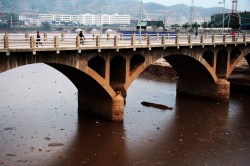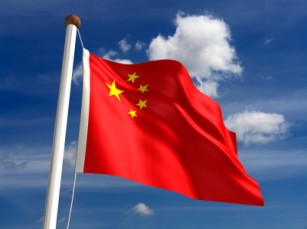
Adam CohnWhoever polluted this river is in big trouble.
There are carrot and stick approaches to tackling pollution. China is reaching for the stick. The country announced Wednesday that it is willing to impose the harshest possible penalty on polluters. From Reuters:
Chinese authorities have given courts the powers to hand down the death penalty in serious pollution cases, state media said, as the government tries to assuage growing public anger at environmental desecration. …
A new judicial interpretation which took effect on Wednesday would impose “harsher punishments” and tighten “lax and superficial” enforcement of the country’s environmental protection laws, the official Xinhua news agency reported.
“In the most serious cases the death penalty could be handed down,” it said.
The announcement comes at a time when China is attempting to turn a new leaf in environmental protection following decades of unchecked pollution and a slew of anti-pollution protests.
China also said it is reducing the amount of damage that must be caused by a polluter before they are prosecuted. From South China Morning Post:
The [new judicial] interpretation … states that a person can be convicted if he or she causes pollution that seriously injures a person. Previously, an incident would have had to result in a death before a person was convicted.
And only one death arising from an incident will be enough to see a sentence increased, rather than three deaths.
[Court spokesman Sun Jungong] said the lowering of the threshold for convicting polluters demonstrated authorities’ determination to “fight and deter environmental crimes”. …
[T]he interpretation details 14 activities that will be considered “crimes of impairing the protection of the environment and resources”.
Dumping radioactive substances into sources of drinking water and nature reserves, and incidents that poison more than 30 people or force more than 5,000 people to be evacuated, will be considered environmental pollution crimes for the first time.
Executing polluters is certainly a more dramatic approach to reining in pollution than is carbon trading, which also began in China this week.




